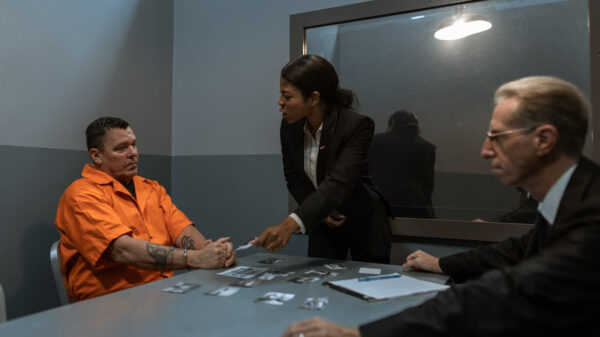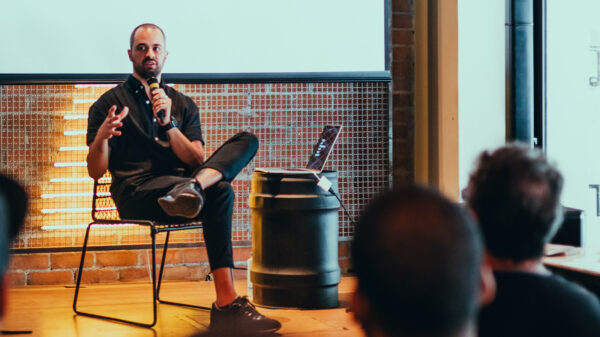
The jury trial lasted about a month. Dateline (the NBC news program) was in the courtroom with us during the course of the trial and the correspondent for this show later interviewed me on camera. He was incredulous about the suspect’s involvement. The evidence was entirely circumstantial. That’s not unusual for my cases (all of them have been built on circumstantial evidence), but this one was particularly extraordinary. There wasn’t a single piece of physical evidence. In fact, we didn’t even have the victim’s body. There wasn’t even a crime scene; the case was worked as a “missing person” investigation back in 1981 and no one examined the home where the victim was killed. Of all my circumstantial cases, this was one was definitely the most difficult and “thin”. It was extraordinary on many levels: the unlikely nature of the crime in 1981, the unlikely nature of the suspect and the unlikely nature of the evidence available to us.
After weeks of testimony, the jury deliberated for only 4 ½ hours. They found the defendant guilty. The family was still unconvinced. The media was equally unmoved. They wanted direct evidence before they would be willing to accept that this kind and gentle man could do something this horrific. Many of them wanted direct evidence before they would even accept the victim was truly dead! As we were preparing to tape the Dateline episode (and prior to the sentencing hearing), skepticism reigned supreme. I was peppered with questions from the interviewer casting doubt on the verdict of the jury. The nature of our evidential case was under fire from every direction. This is an extraordinary charge after all; shouldn’t there be some extraordinary evidence before we lock someone up for the rest of his life? Well, that’s the nature of homicide cases. Thankfully, they are extraordinary and rare. In spite of this reality, jurors draw reasonable conclusions from evidence that is both ordinary and nominal. As a result, I’ve learned that extraordinary claims don’t actually require extraordinary evidence. When the ordinary evidence points to an extraordinary conclusion, jurors are within their right to make a reasonable decision. They do it every day.
Claims about the origin of the universe are also extraordinary. Did everything come from nothing through some natural process involving the laws of physics? Did life emerge from non-life in some similar way? If naturalists eventually form a case for such claims, they’ll do it with rather ordinary calculations and evidences scratched on a chalkboard. They’ll assemble a theory derived from circumstantial evidence (remember that direct evidence involves eyewitness testimony) and they’ll expect all of us to embrace their circumstantial case. I actually think that’s a fair approach to the issue, but I also think it’s a fair approach to use ordinary evidence to come to an extraordinary conclusion about God’s existence. In my new book, God’s Crime Scene: A Cold-Case Detective Examines the Evidence for A Divinely Created Universe, I take this very approach. It’s reasonable to build a case for an extraordinary claim (the existence of God) with rather “ordinary” circumstantial evidence (particularly when this cosmological, biological, mental and moral evidence is cumulative in nature). In the end, all of us make a case for something extraordinary and incomprehensible from very ordinary evidence. By the way, the suspect in our case, the man no one (aside from the jury) believed was guilty, confessed to the crime at the sentencing hearing. That, in itself, was also extraordinary. It’s reasonable to build a case for an extraordinary claim (the existence of God) with rather “ordinary” circumstantial evidence Click To Tweet

J. Warner Wallace is a Dateline featured Cold-Case Detective, Senior Fellow at the Colson Center for Christian Worldview, Adj. Professor of Christian Apologetics at Talbot School of Theology, Biola University, author of Cold-Case Christianity, God’s Crime Scene, and Forensic Faith, and creator of the Case Makers Academy for kids.
Subscribe to J. Warner’s Daily Email
J. Warner Wallace is a Dateline featured cold-case homicide detective, popular national speaker and best-selling author. He continues to consult on cold-case investigations while serving as a Senior Fellow at the Colson Center for Christian Worldview. He is also an Adj. Professor of Christian Apologetics at Talbot School of Theology, Biola University, and a faculty member at Summit Ministries. He holds a BA in Design (from CSULB), an MA in Architecture (from UCLA), and an MA in Theological Studies (from Gateway Seminary).









































Pingback: Around the Web: What You Might Have Missed #2 - Saints and Sceptics